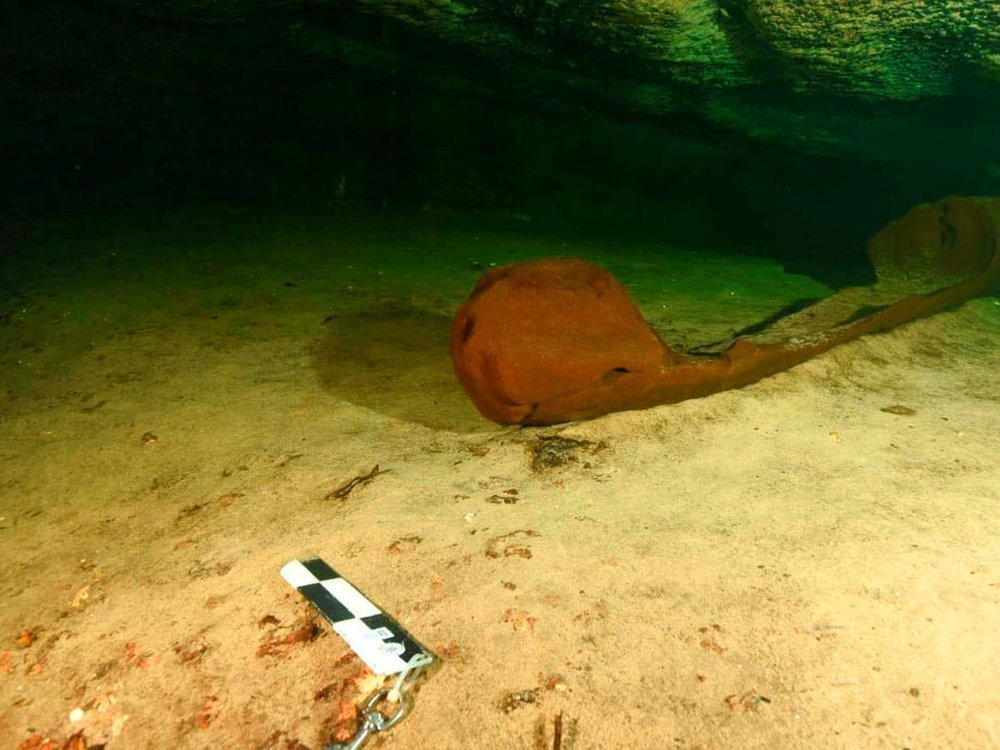Archaeologists in southern Mexico have discovered a well-preserved wooden canoe that may be more than 1,000 years old. Used by the Maya, the vessel was submerged in a cenote, or freshwater sinkhole, near the ruins of Chichén Itzá in Yucatán state, Reuters reports.
The canoe is just over five feet long and two and a half feet wide. Ancient Maya people may have used it to gather water from the cenote or deposit offerings there, notes Mexico’s National Institute of Anthropology and History (INAH) in a statement. The team made the discovery during construction of the Maya Train, a controversial railway set to connect tourist sites in the region.
Researchers have tentatively dated the canoe to between 830 and 950 C.E., BBC News reports. Experts from Sorbonne University in Paris are using dendrochronology, a dating method based on tree rings found in wood, to pinpoint the boat’s exact age.
Per a translation by Reuters, INAH describes the find as “the first complete canoe like this in the Maya area.”
Archaeologists have previously found fragments of similar boats in Guatemala, Belize and the Mexican state of Quintana Roo.
The experts made the discovery while surveying a site known as San Andrés, located in a buffer area near the planned train route. A team from INAH’s Sub-Directorate of Underwater Archaeology (SAS) investigated three bodies of water at the site.


